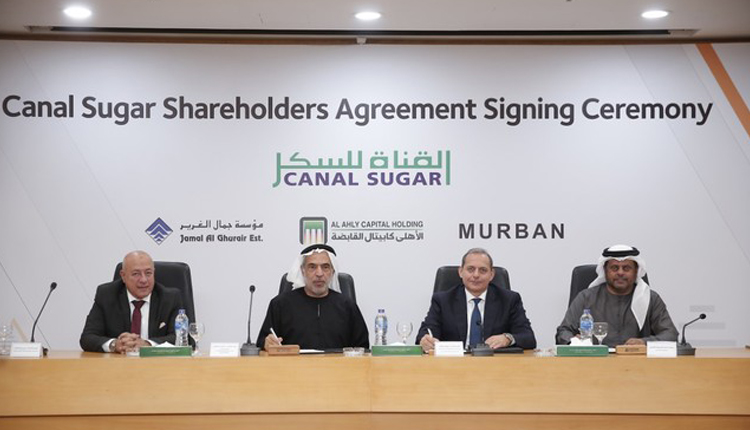Exclusive: Shares of banks in Egypt’s Canal Sugar loan
A consortium of six banks agreed on Sunday to provide Egypt’s Canal Sugar a bridge loan worth a total of $169 million via two tranches, informed banking sources told Amwal Al Ghad.
Four banks agreed to contribute to the loan in the local currency and five more are set to provide financing in US dollar, they said.
The funds, which consist of $100 million and 1.2 billion Egyptian pounds ($69 million), will finance the purchase, construction and operation of Canal’s project in western Minya over the next six months until a $700 million long-term loan is finalised, the company said in a statement.
The banks so far provided Canal Sugar with 896 million pounds and $61.7 million, the sources added.
The following table demonstrates the banks’ contributions to the local currency-dominated tranche.
| The bank | Contribution in Egyptian pound |
| National Bank of Egypt (NBE) | 600 million |
| Suez Canal Bank | 100 million |
| The United Bank | 100 million |
| Qatar National Bank | 96 million |
The banks’ contributions to the dollar-dominated tranche are as follows:
| The bank | Contribution in US Dollar |
| Qatar National Bank – QNB AlAhli | 15 million |
| The United Bank | 15 million |
| AlexBank | 11.7 million |
| Industrial Development Bank of Egypt | 10 million |
| Suez Canal Bank | 10 million |
Canal Sugar is an Egyptian joint stock company headed by Emirati businessman Jamal al-Ghurair, managing director of Dubai-based Al Khaleej Sugar Refinery, the world’s largest port-based sugar refinery.
It had appointed Al Ahly Capital Holding, the private equity arm of the state-owned National Bank of Egypt, as its exclusive financial adviser for the transaction and global coordinator with export guarantee agencies.
As well as the National Bank of Egypt, the consortium also includes Qatar National Bank, Bank of Alexandria, the Industrial Development Bank of Egypt, Suez Canal Bank and The United Bank.
The west Minya project aims to establish the world’s largest beet sugar plant, producing 900,000 tonnes a year, and has an estimated cost of about $1 billion.
It also aims to reclaim about 187,850 acres of desert to produce 2 million tonnes of beet sugar annually, as well as other strategic crops like wheat and corn.


